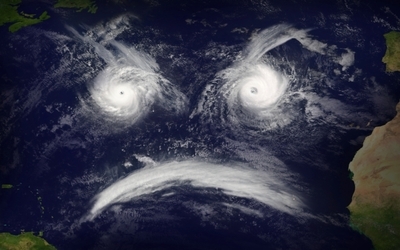Could X Prize Foundation Hold Environmental Answers?
Carbon dioxide is now gushing into the Earth’s atmosphere at the fastest pace in human history, increasing the heat that’s fuelling global warming. These higher temperatures and increase in storms are just part of the problem though, as it seems that the manmade CO2 emissions we’re worried about are also being absorbed by the oceans that cover the planet, making them almost 30 percent more acidic than they were 250 years ago. Scientists are already aware that this is the cause of so many coral reefs dying and dissolving the shells of numerous marine animals, but the overall effects of the ocean acidification is still unknown. The X Prize Foundation thinks that it may have found the solution to the unanswered question on every scientist’s mind – a $2 million prize to anyone who can figure out what the extra CO2 emissions are doing to the pH of the planet’s oceans.
Named the Wendy Schmidt Ocean Health X Prize, this is a 22 month competition that is scheduled to take place in early 2014, with plans to announce the winner in 2015. There will be two purses for the hefty $2 million prize, which can either be won by the same team or split between two winners. There are descriptions of the winnings on the X Prize Foundation’s website, which state that there will be accuracy award and an affordability award. The former of these is $750,000 to the first place and $250,000 to second place, to the teams that come up with the most accurate answer to the entire competition and who provide stable and precise pH sensors under a variety of tests. The latter offers the same amounts of prize money but go to the teams who can produce the least expensive, accurate, stable and easy to use testers to determine the pH level under a variety of tests. This new award is the second collaboration between X Prize and philanthropist Wendy Schmidt for an environmental cause, with the two previously compiling a challenge to find a response to the 2010 Deepwater Horizon oil spill in a bid to find a way of removing crude oil from the seawater.
This is a problem that scientists are only just now beginning to understand, and is something that is set to become a bigger problem as time goes on. Ocean acidification could have a significant ecological and societal implication, changing entire ecosystems and affecting the biodiversity of the planet. The Earth’s oceans are not acidic and remain slightly alkaline, but the pH levels of our waters have been falling by unprecedented amounts since mankind began burning fossil fuels. It’s thought that around 8 billion tonnes of CO2 are absorbed by seawater every year, which is driving the pH levels of the Earth’s oceans down by significant amounts. Naturally, this poses a huge risk to a number of marine plants and wildlife, as well as human economies. There are thought to be around 2 million plant and animal species reliant on coral reefs for survival, and around 30 million people who rely on reefs for income and food. If the seawater is damaged and tarnished in such a large way, it could spell disaster for mankind and marine life alike. Researchers are keen to find solutions quickly to combat this problem, but it is thought that this research prize could seek out some of the brightest minds in environmental science and find answers more quickly.


Comments are closed.